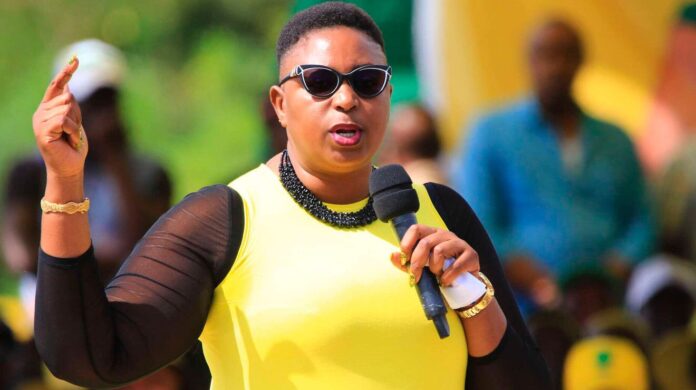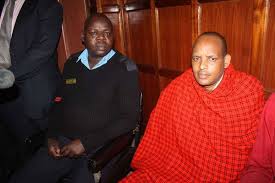The Public Service Cabinet Secretary Aisha Jumwa has filed an application seeking to join the case challenging the appointment of the Director of Public Prosecution Noordin Haji as the Director General, National Intelligence Service
The CS who supports Haji’s appointment says her name has been mentioned in the application by one Khatherine Cherotich thereby seeking to be enjoined as an interested party.
Through lawyer Danstan Omari, CS Jumwa claims that Cherotich is misconceived by alleging that cases instituted against her by Haji were irregularly withdrawn.
“It is a matter of fact that Noordin Haji holds the office of the Director of Public Prosecution, a constitutionally established office that has inherent powers vested upon it which include inter alia the power to charge and withdraw charges,” Jumwa states.
According to her, joining the case will enable her to argue her case and advance her unique interests which cannot be advanced by any of the other parties, especially those who are dragging her name.
Jumwa who claims to have an identifiable stake in these proceedings argues that those opposed to Haji’s nomination have no basis but political witch hunt.
Omari states that it is his client who wrote to the office of the Director of Public Prosecution beseeching that it exercises its power and drop charges against her in Mombasa High Court which were from the onset politically motivated.
The DPP went on to withdraw the anti corruption case before the Chief Magistrate Martha Mutuku and this was well within its purview given the insufficient evidence and political motivations behind the applicants vilification.
She adds that the ODPP is duly empowered in the performance of its duties, elected to discontinue the case against her due to a lack of substantial evidence, a decision that falls squarely within its purview.
It is her argument that Cherotich alleges that her cases were withdrawn without adherence to the due processes set out in law but the court has an obligation to ensure that persons who are likely to be affected by the outcome of any proceedings are given a chance to be heard before such a determination is done.
She adds that Cherotich neither informed, consulted nor sought her permission before instituting the proceedings whereas she mentions her name without any founded facts nor truths, disdaining and dragging her good name.










